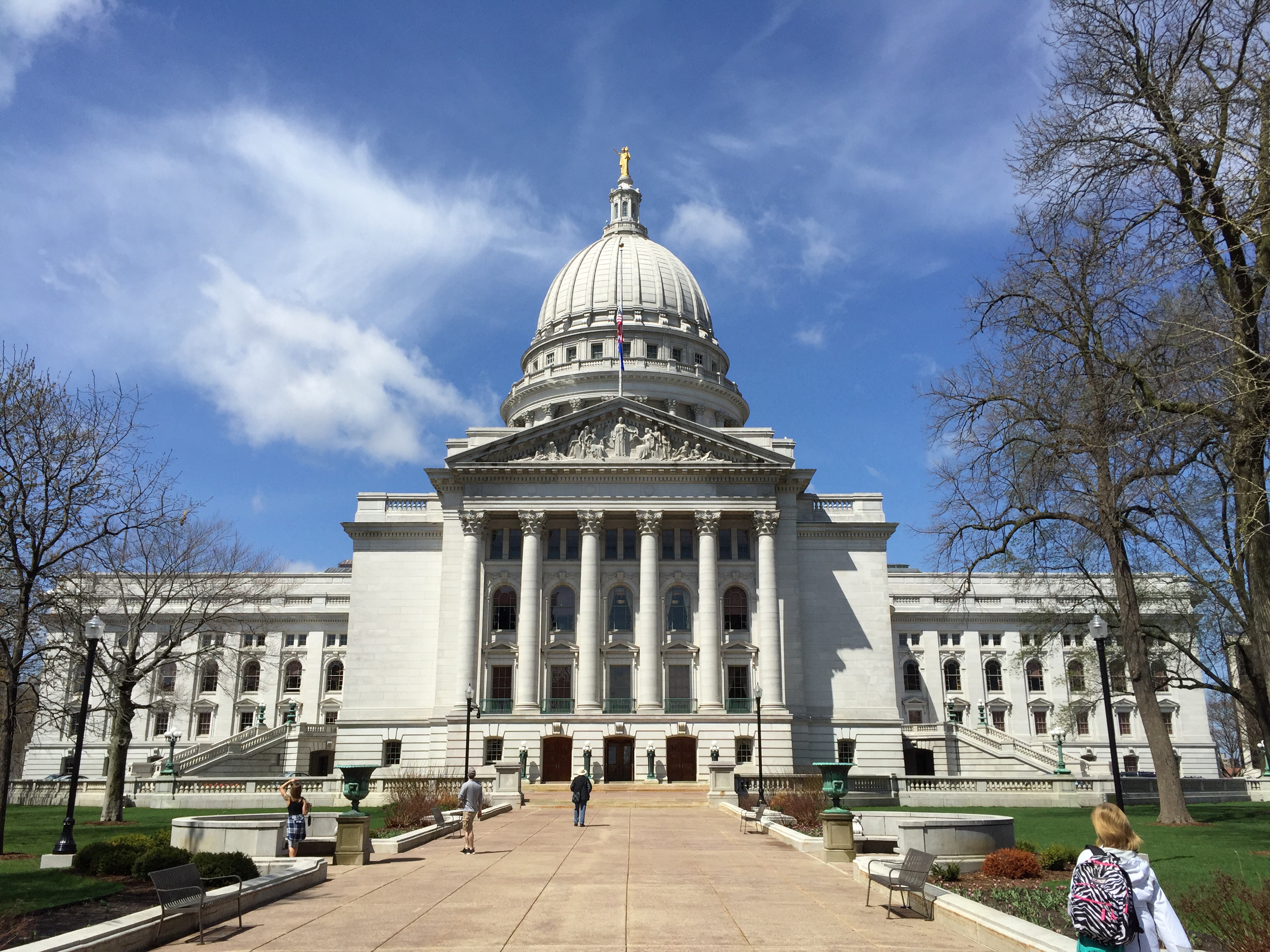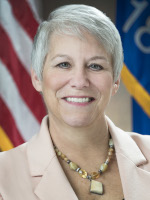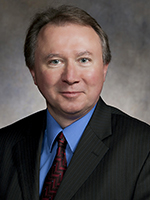GOP Targets Three Democratic Reps
Their Assembly districts voted for Trump. They now face Republican challengers.

Wisconsin State Capitol. Photo by Dave Reid.
More than 55 percent of voters in three counties represented by Democratic Rep. Don Vruwink, of Milton, voted for President Donald Trump – a Republican – in 2016. Vruwink was elected with 54 percent of the vote that year.
More than 51 percent of voters in the district of Democratic Rep. Steve Doyle, of Onalaska, voted for Trump in 2016. Doyle was re-elected with that same 51 percent margin that year. And State Rep. Beth Meyers, D-Bayfield, ran unopposed in 2016 and won 56 percent of the vote in 2018 in a Democratic-leaning district that Trump — in a stunning surprise — carried in 2016.
Which three Assembly Democrats did Republicans target last week? Vruwink, Myers and Doyle.
It’s basically a math exercise: If Trump remains popular in those three Assembly districts represented by Democrats, Trump voters can be reached and convinced to dump those Democrats in this November’s elections. If that happened, and Assembly Republicans keep the 63 seats they now have in districts they drew in 2011, Republicans achieve their real goal: The 66 votes they need to override future vetoes by Democratic Gov. Tony Evers.
If you think this tactic is a new chapter in hardball Capitol politics, you’re right. Still, if the roles were reversed and it was Assembly Democrats who wanted to widen their majority to override a Republican governor, they would be doing the same thing.

State Rep. Beth Meyers
Last week, Assembly Republicans put a partisan squeeze on Vruwink, Mwyers and Doyle on a health-care issue, which polls repeatedly show ranks at the top of voters’ concerns.
The Assembly passed AB 76 last year with votes from Republicans, Vruwink, Meyers and Doyle. It would lower the required training period to be licensed as a certified nursing assistant (CNA) from the current 120 hours to the federal standard of 75 hours.
Groups that opposed the change included AARP Wisconsin, Alzheimer’s Association, Citizen Action of Wisconsin, Coalition of Wisconsin Aging Groups, Disability Rights Wisconsin and Wisconsin AFL-CIO. Supporters included Americans for Prosperity, Home Care Association of America, Disability Service Providers Network, Mayo Clinic Health System, Wisconsin Assisted Living Association, Wisconsin Health Care Association and officials of Outagamie and Washington counties.
Evers vetoed the bill, saying: “I object to providing less training for those who care for our state’s most vulnerable citizens. Research has shown that higher training standards result in better outcomes for patients, lower staff turnover, and higher job satisfaction. There are better ways to address the shortage of nurse aides than reducing the quality of training programs.”
Last Wednesday, Assembly Republicans attempted to override that veto, needing the votes of Vruwink, Meyers and Doyle to do so. The math: 63 Republicans and three Democrats totals the 66 votes – two-thirds of the 99-member Assembly – to override a veto.
The last time a Legislature overrode a governor’s veto was 1985.
Republicans challenged Vruwink, Meyers and Doyle to stick by their earlier votes for AB 76. When legislators promise to vote one way – for AB76 – and then go back on that promise, they lie to their constituents, Assembly Speaker Robin Vos said during debate.
Before the vote, Republican Majority Leader Jim Steineke issued separate press releases pressuring the three Democrats. Steineke took special aim at Meyers, whose district includes parts of six northern counties. “Communities across the state are struggling to find and retain CNAs, with northern and rural communities being hit hardest,” Steineke said. “AB 76 addresses this rising concern by changing Wisconsin’s required training hours to match the federal standard of 75 hours – a number that is used by neighboring states of Minnesota, Iowa, and Michigan.”

State rep. Steve Doyle
Vruwink and Doyle spoke, but only Doyle said how he would vote. Saying he would not “kowtow” to pressure from either political party, Doyle promised to sustain Evers’ veto. “This [bill] is not a silver bullet,” added Doyle, a member of Assembly Democratic leadership. He was elected in a special 2011 election to what had been a traditional GOP seat.
The veto override failed on a partisan 63-36 vote; Meyers and Vruwink also sustained the governor’s veto.
In a statement after the vote, Vos signaled that voters in those three Assembly districts will be reminded of what happened Wednesday.
Vruwink, Meyers and Doyle “who voted for the bill previously chose not to do what’s best for their district and the state,” Vos charged. “Politics is more important to them than the people in their districts.”
And those people will decide this fall whether they agree.
Steven Walters is a senior producer for the nonprofit public affairs channel WisconsinEye. Contact him at stevenscotwalters@gmail.com
The State of Politics
-
A Wisconsin Political Trivia Quiz
 Dec 15th, 2025 by Steven Walters
Dec 15th, 2025 by Steven Walters
-
The Fight Over Wisconsin’s House Districts
 Dec 8th, 2025 by Steven Walters
Dec 8th, 2025 by Steven Walters
-
The Battle Over On-Line Betting
 Nov 24th, 2025 by Steven Walters
Nov 24th, 2025 by Steven Walters





















